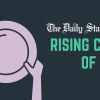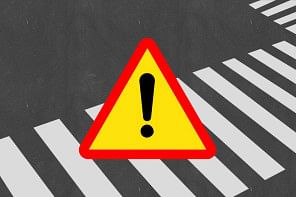On the verge of starvation

A World Bank survey conducted between June 2020 and May 2022 has found that around 30 percent people in Bangladesh are currently facing food scarcity. This is despite the fact that the country's economy made a recovery from pandemic-induced shocks, according to the report. The survey has found that 13 percent of people went to sleep hungry in May this year, compared to seven percent in June 2021. During the same time, the number of people who could not afford to buy food and those who didn't eat in 24 hours also increased. These findings have been revealed at a time when we are already worried about the rising inflation that has affected purchasing capacities and the food shortage that the country might face in the coming months.
It is true that our economy showed some quick signs of recovery after the first two waves of the Covid-19 pandemic, but before its effects could trickle down to the poverty-stricken people, they were left to confront the cost of living crisis. Against the backdrop of the Russia-Ukraine war, and thanks to poorly thought-out interventions by the government, inflation has now surged out of control, further reducing people's access to food. Although the government has taken some measures to provide essential food items to the poor at subsidised prices, they have been woefully inadequate in reaching all the people who need such assistance. The government's inability to check inflation means that more and more people are having to make compromises on their nutritional needs.
Currently, 68 percent of the country's population are struggling to buy food due to their sky-rocketing prices, according to a survey by the World Food Programme. These people, who do not have enough cash to meet the day-to-day food expenses of their families, are either being forced to take loans or use up their savings. At present, it is not only rice, wheat, meat and vegetables that are being sold at extremely high prices, but even eggs, a low-cost source of protein for the low-income people, have gone out of reach for many.
So, how to bring the situation under control? The government should not only take concrete measures to check food inflation – by importing food grains and bringing down food prices through proper market interventions – but it should also strengthen its Vulnerable Group Feeding (VGF) and Food For Work (FFW) programmes to reduce food insecurity. While these steps can give some temporary relief to those most vulnerable, as long-term measures, we should focus on increasing our own food production in order to avert any future food crisis. Since the country is continuing to regularly face natural disasters, including floods and the recent cyclone, the farmers in the affected areas need to be given cash incentives as well as fertilisers and fuel for irrigation at subsidised prices. The food scarcity and high inflation in the country can only be checked through proper policies and their effective implementation.


 For all latest news, follow The Daily Star's Google News channel.
For all latest news, follow The Daily Star's Google News channel. 






Comments